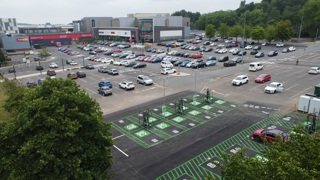Understanding wholelife costs is critical as fleets start to accommodate electric vehicles (EVs), says CBVC Vehicle Management.
The fleet management provider is urging financial advisors and accountants to encourage businesses to ignore headline lease rental rates and to instead focus on wholelife costs for fleet cost savings.
Focusing simply on monthly lease rates will not only skew fleet policy, but it could lead to greater costs for the business and the driver, it says.
Mike Manners, managing director of CBVC Vehicle Management, explained: “As zero-emission cars typically have higher list prices than traditional internal combustion-engine (ICE) vehicles, savings on fuel, maintenance and tax can easily offset any initial difference and make electric vehicles much cheaper.
“This makes wholelife cost comparisons a critical part of any fuel transition plan, to ensure that the right technology options are deployed in the most suitable areas.”
For example, Tesla model 3 has a £40,935 list price for a Standard Plus model, when an equivalent petrol BMW 3 Series 320i M Sport is £38,415 or a diesel 318d SE Pro is £34,665.
The headline lease rates reveal the Tesla costs £555 per month over three years/60,000 miles while the petrol BMW costs £483 over the same profile.
But implementing a wholelife cost approach dispels the assumption that the EV is more expensive than either of the ICE models.
CBVC calculations show the true monthly cost of the Tesla. When the rental, VAT recovery, maintenance costs, Corporation Tax deductions, insurance, and Class 1A National Insurance Contributions are considered, the actual cost is £653 per month, compared with the petrol BMW at £757 per month, while the diesel is £699.
Overall, the Tesla will cost a company £23,517 over a three-year cycle compared with £27,256 for the petrol BMW and £25,155 for the BMW diesel.
During a three-year operating cycle, the diesel BMW driver would pay £12,348 in benefit-in-kind (BIK) tax and the petrol BMW driver would incur a company car tax bill of £15,516.
In contrast, the Tesla driver would pay £864, saving £11,484 and £14,652 respectively compared with the BMWs.
For businesses not ready to switch to a fully electric operating fleet, a plug-in hybrid vehicle (PHEV) offers a cost-effective way to move away from a dependency on diesel and petrol company cars, says CBVC.
Financial advisors and fleets should be aware that although more expensive than the petrol or diesel alternative, the PHEV has a lower wholelife cost, equivalent to £20,831 over a three-year cycle.
And drivers will only spend £5,580 on tax over three years - less than half the amount incurred by drivers of a petrol or diesel vehicle. CBVC says that this will help the client save thousands of pounds over a three-year cycle.
It's a similar story if the operating cycle is changed, for example to four years/80,000 miles.
Manners said: “When advising clients, accountants should be aware that an analysis of wholelife costs demonstrates a strong financial argument for businesses to begin the switch to zero-emission motoring, and with the right approach, a business can unlock significant savings while also cutting emissions at the same time and reducing their carbon footprint.
“One note of caution, when modelling plug-in hybrids, as forecast fuel economy is derived in test conditions, numbers are substantially higher than those achieved in actual running conditions.”
WEALTH OF EV DATA
A wealth of information about electric vehicles is available to fleets courtesy of a newly-launched resource tool on the Fleet News website.
Facts and figures on more than 200 electric vehicle variants are provided on our EV data tool, with detailed information on electric essentials such as range, efficiency, charging times and rapidcharge information (in miles / hour).
Range information is broken down into 'real range estimations', city, highway and combined; charging into the different types – wall plug and from 3.7kW to 22kW charging points.
BIK tax rates and P11D values are also included.
The EV data tool is sponsored by Geotab.




















Login to comment
Comments
No comments have been made yet.